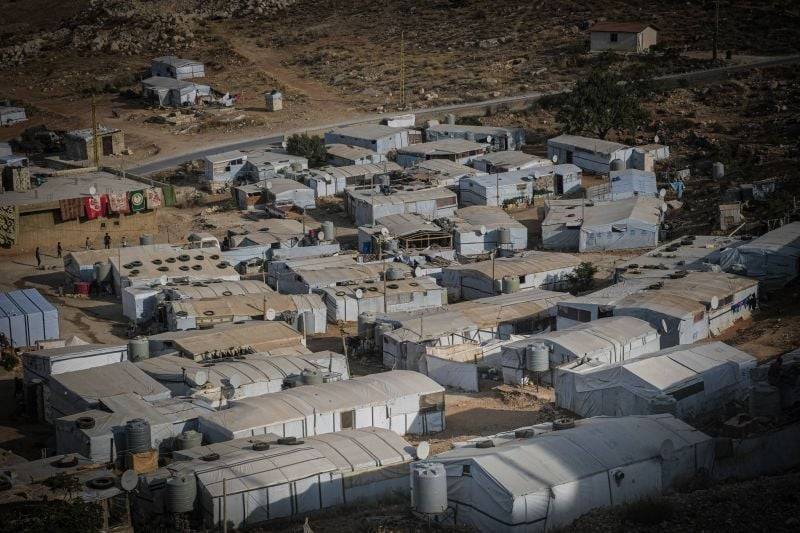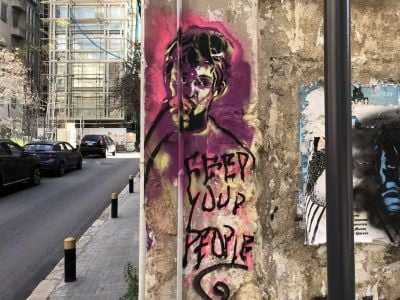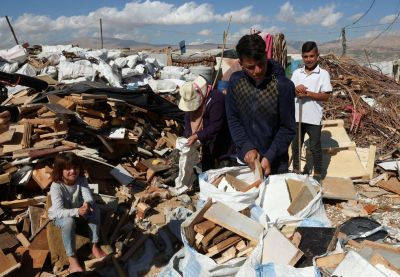
A Syrian refugee camp in Lebanon. (Credit: João Sousa/L'Orient Today)
BEIRUT — Amid difficult living conditions for Syrian refugees in Lebanon, some "90 percent of Syrian refugee families need humanitarian assistance to survive," according to a joint statement Friday by the UN Refugee Agency, the World Food Program and the UN Children's Fund.
"Almost 87 percent of families listed food as their main priority followed by housing and healthcare," the statement said, adding that Syrian refugees have been cutting back on meals, healthcare and education expenses to prioritize food purchases.
'Concerning findings'
Syrian children and adolescents are the most affected by Lebanon's economic crisis, the UN statement added. Their assessment showed that "60 percent of Syrian refugee children between the ages of six and 14 were attending school regularly in 2022, with the rate dropping to eight percent attendance for the older adolescents at upper secondary school level."
"Additionally, children’s nutrition is at stake, with less than half of infants under five months of age being exclusively breastfed, and only 11 percent meeting the minimum number of meals and food groups per day," the UN's assessment found. "Six out of 10 Syrian refugee boys and girls experienced violent disciplinary methods."
“The levels of food security for refugees in Lebanon are extremely worrisome,” Abdallah Al-Wardat, WFP Representative and Country Director in Lebanon said via the joint statement. “Thanks to the generous support of our donors, WFP is supporting one in every three people in the country. We are providing cash assistance, food parcels and school snacks, and supporting livelihoods activities across Lebanon.”
“Despite the price of essential items and services skyrocketing by over 700 percent since June 2020, families in Lebanon still earn less while having to pay much more for the most basic goods. UNHCR and partners continue to support the most vulnerable refugees with humanitarian assistance. UNHCR also supports public institutions, including hospitals and municipalities,” said the agency's representative to Lebanon Ayaki Ito, UNHCR Representative in Lebanon.
“But this is far from enough. More help for vulnerable refugees and Lebanese families is urgently needed, including support to Lebanese institutions to provide sustained basic services," he added.
The statement Friday comes amid soaring poverty levels across Lebanon, with 80 percent of the country's households earning less than $377 per month, according to a recent Human Rights Watch report.

